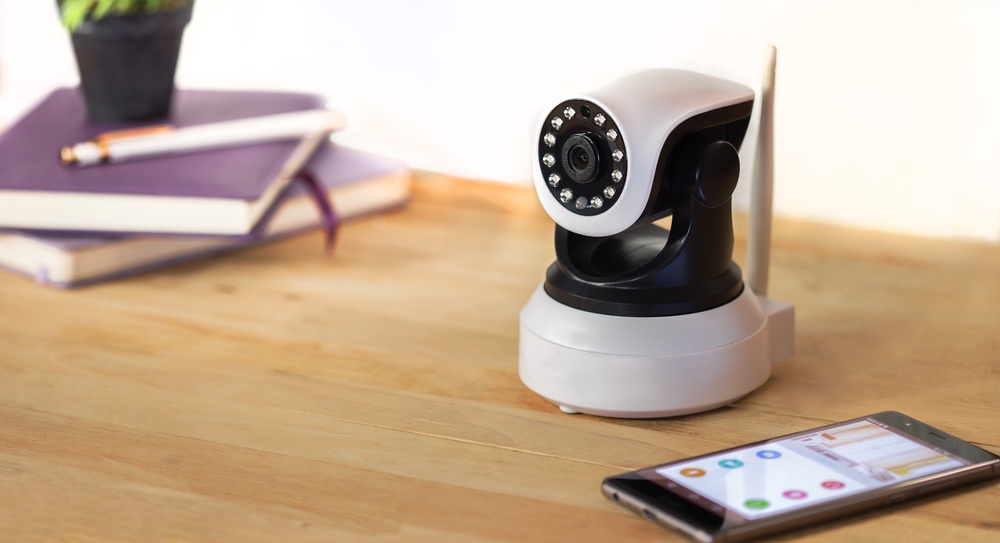An Internet Protocol (IP) camera is a digital video camera that uses an internet connection to transmit and receive data. Unlike traditional analog cameras, IP cameras allow users to take benefit of the latest technology and trends, such as HD video, wireless transmission, motion detection, analytics, onboard storage, cloud connectivity, and more.
Components
An IP camera consists of a network of hardware components, including the camera body, which houses the lens and sensor; a processor for carrying out all the processing tasks; a storage device for recording footage; and a network interface for transmitting or receiving data from other devices. They also come with video management software to provide real-time monitoring capabilities.
Key Features
Some key features of security IP Cameras include High-resolution images – capable of capturing high-definition images even in low light conditions; wide dynamic range – allowing for better color accuracy in varying lighting conditions; advanced analytics – enabling sophisticated functions such as facial recognition, object tracking, and people counting; enhanced security – with built-in encryption protocols to protect your data from unauthorized access; cloud connectivity – providing easy access to stored footage while on the go.
What Are They Used For?
Security IP Cameras are used in both residential and commercial settings. In homes, they are part of home security systems, while businesses often use them for surveillance or employee monitoring.
Some key benefits that IP cameras offer include improved scalability compared to traditional analog systems and reduced costs due to fewer maintenance requirements. They also offer more reliable performance since they are not affected by interference from other signals like radio frequencies. Furthermore, some models are compatible with existing legacy systems, so upgrading is easy without needing changes in hardware or software architecture.
Cost
The cost of owning the best security cameras in Orange County varies depending on their features. Still, it is generally much lower than conventional CCTV systems due to its flexibility and scalability options when installing multiple units across various locations. Moreover, modern models are designed with intuitive interfaces, making them easier to install and operate than complex CCTV systems.
It’s also important to note that certain countries have laws regulating CCTV surveillance systems, so it’s always best to check local regulations before setting up an IP camera system to avoid potential legal issues down the line.
Things to Look For When Buying IP Cameras
When buying the best security cameras in Orange County, there are a few key considerations you should be aware of before making a purchase. An IP camera is an advanced digital security and surveillance system that connects to your home or business network, allowing you to monitor and record video footage remotely. This blog post will look at what to consider when buying an IP camera.
Quality
First, it’s important to evaluate the quality of the camera you’re considering. You want to make sure that it has a high-quality video signal so that you can get clear images. If you plan on monitoring outdoor areas, ensure the camera is weatherproof and can handle extreme temperatures. Also, consider the camera's resolution – higher resolutions will provide sharper images if that’s what you’re after.
Features
Regarding cost, IP cameras vary widely in price depending on the features they offer. Cheaper models may not have all the bells and whistles of more expensive ones, but they should still provide good-quality images for basic surveillance needs. Consider how much coverage you need for your home or business and opt for a model that fits your budget without sacrificing quality.
Connectivity Options
You should also think about what type of connectivity options the camera offers. Wired IP cameras use a physical connection between the camera and router, while wireless models connect via Wi-Fi or Bluetooth. Each option has pros and cons, so choose one that best suits your needs and environment. Additionally, many models now come with night vision capabilities which are great if you’re planning on monitoring after dark and during daylight hours.
Finally, make sure to read up on user reviews before purchasing any IP camera system – this will help you understand how easy or difficult it is to install and configure the device and give insight into how reliable it is over time. Additionally, ask yourself whether or not your current network infrastructure can handle an IP camera system before investing in one. Some models require more power than others, so consider this when making your choice.
In summary, there are several factors to consider when buying an IP Camera, such as image quality, cost range, connectivity options, night vision capabilities, and user reviews, along with questions regarding existing network infrastructure setup and requirements for installation/configuration complexity.


No comments yet